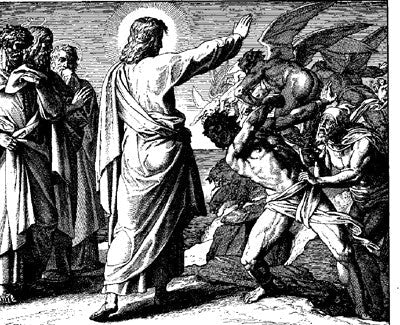Sermons & Homilies

We have reached today the midpoint of the Fast. Half of the struggle is behind us, and the second half still lies ahead. And seeing our weakness, seeing our faintness of heart and the ease with which we can tire and grow despondent, on this Sunday our mother the Holy Church mercifully offers us hope and refreshment, comfort and consolation. But the form which this takes is not at all what “common sense” might imagine. Of the events yet to come, of the prizes which we are running to obtain, the Church does not offer a prefigurement of Pascha and the resurrection, but rather of Holy Friday and the Cross.
Continue reading

The carnal and Jewish-minded man, says St. John of the Ladder, prepares for Feasts by arranging what foods he can enjoy on them; but the spiritual Israelite, the true Christian, seeks the spiritual recompenses which are bestowed on the Feast Days. The Jewish-minded man paints within his mind with great expectation all the dishes he can glut himself with and all the dainties he can gulp down; but the spiritual man seeks how he can slake his spiritual thirst and sate his spiritual starvation.
Continue reading

In today’s epistle, we hear the Apostle Paul establishing the basis of a Christian’s salvation: “That if thou shalt confess with thy mouth the Lord Jesus, and shalt believe in thine heart that God hath raised him from the dead, thou shalt be saved” (Rom. 10.9). The opposite is that if you do not confess the Lord Jesus, or if you do not believe in your heart, you are not a Christian, you will not be saved. However, is salvation so simple, effortless, and undemanding as this would sound? Does the Apostle mean to imply that there is no gradation of belief or allowance for doubt or periods of disbelief or struggle so that one can say with the father of the demon-possessed son, “Lord I believe, help my unbelief.” (Mark 9:24)? Is the Apostle Paul implying that confessing and believing are all that is needed to be a Christian? Or is he directing his statement that “let him who thinks he stands take heed lest he fall” (1 Cor. 10.12) to those who believe Christianity to be so simplistic?
Continue reading

With this saving hope, let us fix our whole mind and heart upon Christ, always watching and waiting for Him to appear at His second and glorious coming. For, those who await Him and hope in Him are always being made more like God.
Continue reading
We modern Christians, both monks and laymen often acknowledge that God is the Lord and we honor Him and consider ourselves to be faithful members of His Church. But something happens to our faith as soon as we have a hardship or illness, we so often turn away from God and look to ourselves and our own ability to resolve the problem, we seldom turn to God.
Continue reading

